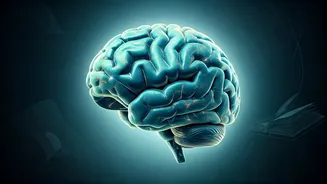Discover the profound impact of music on your mood in 7 compelling facts. Unlock the power of music for emotional well-being
In the hustle-bustle of daily life, where deadlines loom and traffic snarls become
a norm, it's easy to overlook the simple joys that can uplift our spirits. One such joy, often taken for granted, is music.

From the moment we wake up to the time we drift off to sleep, music accompanies us, sometimes subtly, sometimes powerfully shaping our mood and influencing our emotions. But have you ever stopped to consider just how profound this impact is?
Beyond mere entertainment, music holds a key to unlocking a world of emotional well-being, cognitive enhancement, and even physical healing. Let's delve into seven fascinating facts about the impact of music on your mood that will make you appreciate your favorite tunes even more.
Music as a stress buster in today's hectic world
Life in today's world can feel like a pressure cooker at times. Deadlines, relationship troubles, and the constant barrage of information can leave us feeling stressed and anxious.

But here's a little secret: music can be a powerful antidote to these feelings, just like a comforting cup of chai on a rainy day. Studies have shown that listening to calming music can slow down your heart rate, lower your blood pressure, and decrease levels of cortisol, the stress hormone.
This physiological response translates into a feeling of relaxation and peace, helping you navigate stressful situations with a calmer mind. So, the next time you're feeling overwhelmed, put on your favourite relaxing tunes and let the music wash away your worries.
Whether it's classical music, nature sounds, or that soulful melody that always puts you at ease, allow the power of music to soothe your mind and bring you back to a state of equilibrium. This is so important for mental health in India where societal pressures can be high.
Music shapes moods, boosting happiness or aiding processing
Imagine your mood as the weather. Sometimes it's sunny and bright and sometimes it overcast. Music has the power to change the weather in your mind. Upbeat music, with its fast tempo and cheerful melodies, can trigger the release of dopamine, the "feel-good" neurotransmitter in your brain.
This surge of dopamine creates a sense of happiness, excitement, and even euphoria. But the beauty of music lies in its versatility.
If you're feeling down, listening to melancholic music, while perhaps seeming counterintuitive, can actually help you process your emotions and release pent-up feelings.
It's like allowing yourself to feel sad for a while, knowing that the music will eventually guide you back to a more balanced emotional state.
Music is like a trusted friend who helps you navigate the complexities of your emotions, offering solace in times of sadness and amplifying the joy in moments of happiness. Therefore, it contributes to an overall sense of emotional well being.
Music enhances focus amidst distractions
In today's world of constant distractions, where notifications ping every few seconds and social media beckons, it can be incredibly difficult to focus on tasks that require deep concentration.

But music can be your secret weapon in the fight against distraction, acting as a surprisingly effective study buddy. Listening to instrumental music, particularly genres like classical music or even certain types of electronic music, can create a focused and productive environment.
The absence of lyrics minimizes distractions, allowing your mind to concentrate on the task at hand. Moreover, the rhythmic patterns in music can synchronize with your brainwaves, creating a state of heightened focus and attention.
This is particularly helpful for students preparing for exams or for professionals working on complex projects. So next time, turn on instrumental music and enter a world of increased concentration.
Music's emotional power: a time machine unlocking memories
Have you ever heard a song that instantly transported you back to a specific moment in your life? Music has a remarkable ability to unlock memories and evoke powerful emotions associated with those memories.

This is because music is processed in the same part of the brain that handles memory and emotions. When you listen to a song that you associate with a particular event or person, it can trigger a flood of memories and emotions, allowing you to relive those experiences in vivid detail.
This can be a powerful tool for reminiscing about happy times, processing difficult emotions, and even for helping people with memory loss reconnect with their past. Music is like an emotional time machine, capable of transporting you back to moments that have shaped who you are.
And it is so useful for connecting to earlier stages.
Music reduces pain perception through distraction and endorphin release, improving well-being
Believe it or not, music has been shown to have pain-relieving properties. Studies have found that listening to music can reduce the perception of pain, both physical and emotional.

This is because music can distract you from the pain signals being sent to your brain, as well as trigger the release of endorphins. Music also provides mental and emotional relief, improving well-being.
Music unites people, fosters empathy, creates community
Music is a universal language that transcends cultures and connects people from all walks of life. Whether you're attending a concert with thousands of strangers or singing along to your favourite songs with friends, music creates a sense of community and belonging.
Sharing musical experiences with others can strengthen bonds, foster empathy, and create lasting memories. Music provides a shared emotional experience. This is particularly important in a world where social isolation is on the rise.
Through music and connection, feelings of community create a support network for a happy life.
AI Generated Content. Glance/InMobi shall have no liability for the content













